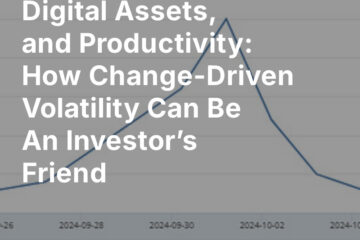Facebook’s Power Play
Last week, Facebook [NASDAQ: FB] finally announced its long-rumored digital currency initiative. Although bitcoin had been rallying since April, since the announcement it has risen almost 25%, as of this writing.
Why the boost for bitcoin? Won’t FB’s currency — called “Libra” — be competition for bitcoin? Perhaps, but speculators are betting that the FB initiative will mean that this enormous, deep-pocketed tech company with global reach will now be doing the heavy lifting that creates an onramp into the digital currency space acceptable to the world’s financial regulators. Hundreds of millions — eventually, billions — of consumers who currently lack access to digital assets could now get it. They will buy Libra… and then many of them could easily buy bitcoin (or any other of the thousands of digital currencies that now exist). That’s why FB’s announcement has had a galvanizing effect on bitcoin.
However, FB’s initiative is much more important than just a spark for the next run-up in bitcoin.
Libra: Vision and Problems
From a bird’s-eye view, Libra feels like such a natural fit for FB that it’s almost as if the whole point of creating the trio of Facebook’s core, Instagram, and WhatsApp applications was simply to make a social network where Libra could be launched.
In FB’s plan, Libra will be a global digital currency, available to anyone with a smartphone; making a financial transaction with Libra would be as simple and as cheap as sending a text message. Libra will be a so-called “stablecoin” — every Libra coin issued will be backed by stable, liquid assets held in reserve (unlike most fiat currencies and cryptocurrencies, which have no tangible assets backing them). This will in theory insulate Libra from the kinds of wild valuation swings that have made other digital currencies more or less useless as media of exchange and stores of value.
FB obviously hopes to replicate the tremendous success that payment apps have enjoyed in China (where they have all but supplanted other payment methods), but on a global scale. The ease of transactions would allow them to accelerate the adoption of their apps for commerce, and also allow them (or their partners) to easily extend bank-like services to the world’s 1.2 billion unbanked Android phone users — primarily poor people in the global south. If all goes well, that could win them accolades and build goodwill from governments and socially conscious citizens who now mistrust FB deeply.
As Libra becomes more successful, it would build up an increasing reservoir of reserves backing the issued digital coins. What happens to those? The governing body for the currency, a Swiss-based nonprofit called the Libra Association.
Although FB has led, and for some time, will continue to lead the Libra project, that leadership will ultimately pass to this nonprofit. Currently, it includes 28 members, including venture capital funds and global tech and payments leaders such as Visa [NYSE: V], Mastercard [NYSE: MA], PayPal [NASDAQ: PYPL], Stripe, Ebay [NASDAQ: EBAY], Lyft [NASDAQ: LYFT], Spotify [NASDAQ: SPOT], and Uber [NASDAQ: UBER]. (It’s an impressive list, but conspicuously lacks any representation from banks. Of course, this is because banks would like to build their own competing digital currency systems.)
Members of the Libra Association will operate nodes in the network which confirm transactions — while bitcoin has no central authority, Libra will.
This makes the issue of Libra’s governance a key question, and you can be sure that global regulators are thinking about it too.
The Libra Association
The white papers describing Libra are not statements being made by a humbled and contrite company that is acknowledging its errors and seeking to regain the good graces of consumers and regulators. Rather, these documents are a bold statement of a future in which FB, having remade the landscape of global social interaction, goes on to remake the landscape of global finance.
The Libra Association founding documents express hope for a future where Libra is governed in a decentralized way. But they note that there is currently no known path to this goal:
“To ensure that Libra is truly open and always operates in the best interest of its users, our ambition is for the Libra network to become [decentralized]. The challenge is that as of today we do not believe that there is a proven solution that can deliver the scale, stability, and security needed to support billions of people and transactions across the globe through a [decentralized] network.”
In short, don’t hold your breath. For the foreseeable future, Libra will be run by the Libra Association.
So who determines who is in the Libra Association? The answer is — the Libra Association, until there is a “clear roadmap” to the network becoming decentralized, at which point anyone with the necessary hardware could operate a node in the network. But that’s a future towards which even FB says there is no visible path.
In short, don’t hold your breath. For the foreseeable future, the Libra Association will be a closed club which determines its own membership.
These technical and governance issues will be in the foreground as FB continues to engage with regulators around the world in the leadup to Libra’s anticipated launch next year. FB will meet a lot of skepticism — especially because its past behavior has often seemed to hide a fierce expansionary drive under a veneer of savvy public relations. The socially positive aspects of the Libra project — such as the beneficial effects of expanding inexpensive financial services to a wide swath of the world’s poor — will probably encounter a wall of public and regulatory cynicism. FB’s leaders have not yet convinced the world that they can be trusted.
FB has successfully persevered through such troubles in the past. We will be watching the reaction to Libra as the project moves forward.
Investment implications: In a “blue sky” scenario where FB overcomes public skepticism and regulatory concerns, the Libra project could represent a profound expansion of FB’s presence in e-commerce and financial services, providing wholly new revenue streams, deepening the company’s strength as an advertising powerhouse, and creating public goodwill. However, there are many clouds on the horizon, and we believe that in the face of regulatory concerns and likely competition from globally significant banks, the timeline for Libra adoption proposed by FB is extremely aggressive. In the near term, the vicissitudes of the approval process could cause volatility for FB, though, in our view, not as severe as those which accompanied the revelation of the company’s privacy missteps. The progress of the project could also continue to provide support for cryptos, as speculators anticipate a new influx of cash into the digital asset space in general.
Please note that principals of Guild Investment Management, Inc. (“Guild”) and/or Guild’s clients may at any time own any of the stocks mentioned in this article, and may sell them at any time. Currently, Guild’s clients own FB, PYPL, and V. In addition, for investment advisory clients of Guild, please check with Guild prior to taking positions in any of the companies mentioned in this article, since Guild may not believe that particular stock is right for the client, either because Guild has already taken a position in that stock for the client or for other reasons.



